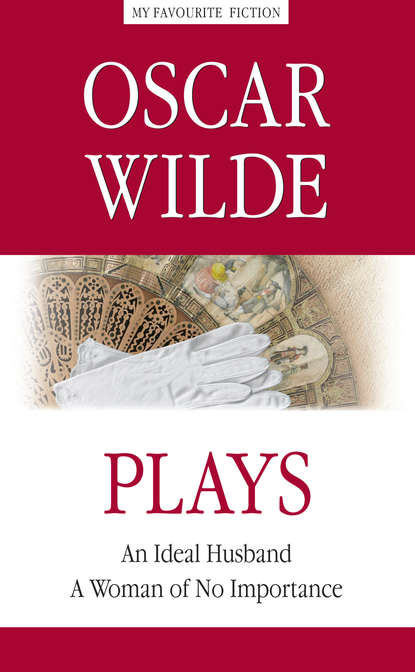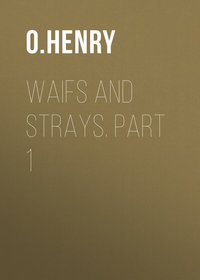
Полная версия
Short Stories / Рассказы
Once a fascinating gentleman bought four dozen handkerchiefs, and wooed her across the counter with a King Cophetua air. When he had gone one of the girls said:
“What’s wrong, Nance, that you didn’t warm up to that fellow. He looks the swell article, all right, to me.”
“Him?” said Nancy, with her coolest, sweetest, most impersonal, Van Alstyne Fisher smile; “not for mine. I saw him drive up outside. A 12 H. P. machine and an Irish chauffeur! And you saw what kind of handkerchiefs he bought – silk! And he’s got dactylis on him. Give me the real thing or nothing, if you please.”
Two of the most “refined” women in the store – a forelady and a cashier – had a few “swell gentlemen friends” with whom they now and then dined. Once they included Nancy in an invitation. The dinner took place in a spectacular cafe whose tables are engaged for New Year’s eve a year in advance. There were two “gentlemen friends” – one without any hair on his head – high living ungrew it; and we can prove it – the other a young man whose worth and sophistication he impressed upon you in two convincing ways – he swore that all the wine was corked; and he wore diamond cuff buttons. This young man perceived irresistible excellencies in Nancy. His taste ran to shop-girls; and here was one that added the voice and manners of his high social world to the franker charms of her own caste. So, on the following day, he appeared in the store and made her a serious proposal of marriage over a box of hem-stitched, grass-bleached Irish linens. Nancy declined. A brown pompadour ten feet away had been using her eyes and ears. When the rejected suitor had gone she heaped carboys of upbraidings and horror upon Nancy’s head.
“What a terrible little fool you are! That fellow’s a millionaire – he’s a nephew of old Van Skittles himself. And he was talking on the level, too. Have you gone crazy, Nance?”
“Have I?” said Nancy. “I didn’t take him, did I? He isn’t a millionaire so hard that you could notice it, anyhow. His family only allows him $20,000 a year to spend. The bald-headed fellow was guying him about it the other night at supper.”
The brown pompadour came nearer and narrowed her eyes.
“Say, what do you want?” she inquired, in a voice hoarse for lack of chewing-gum. “Ain’t that enough for you? Do you want to be a Mormon, and marry Rockefeller and Gladstone Dowie and the King of Spain and the whole bunch? Ain’t $20,000 a year good enough for you?”
Nancy flushed a little under the level gaze of the black, shallow eyes.
“It wasn’t altogether the money, Carrie,” she explained. “His friend caught him in a rank lie the other night at dinner. It was about some girl he said he hadn’t been to the theater with. Well, I can’t stand a liar. Put everything together – I don’t like him; and that settles it. When I sell out it’s not going to be on any bargain day. I’ve got to have something that sits up in a chair like a man, anyhow. Yes, I’m looking out for a catch; but it’s got to be able to do something more than make a noise like a toy bank.”
“The physiopathic ward for yours!” said the brown pompadour, walking away.
These high ideas, if not ideals – Nancy continued to cultivate on $8 per week. She bivouacked on the trail of the great unknown “catch,” eating her dry bread and tightening her belt day by day. On her face was the faint, soldierly, sweet, grim smile of the preordained man-hunter. The store was her forest; and many times she raised her rifle at game that seemed broad-antlered and big; but always some deep unerring instinct – perhaps of the huntress, perhaps of the woman – made her hold her fire and take up the trail again.
Lou flourished in the laundry. Out of her $18.50 per week she paid $6. for her room and board. The rest went mainly for clothes. Her opportunities for bettering her taste and manners were few compared with Nancy’s. In the steaming laundry there was nothing but work, work and her thoughts of the evening pleasures to come. Many costly and showy fabrics passed under her iron; and it may be that her growing fondness for dress was thus transmitted to her through the conducting metal.
When the day’s work was over Dan awaited her outside, her faithful shadow in whatever light she stood.
Sometimes he cast an honest and troubled glance at Lou’s clothes that increased in conspicuity rather than in style; but this was no disloyalty; he deprecated the attention they called to her in the streets.
And Lou was no less faithful to her chum. There was a law that Nancy should go with them on whatsoever outings they might take. Dan bore the extra burden heartily and in good cheer. It might be said that Lou furnished the color, Nancy the tone, and Dan the weight of the distraction-seeking trio. The escort, in his neat but obviously ready-made suit, his ready-made tie and unfailing, genial, ready-made wit never startled or clashed. He was of that good kind that you are likely to forget while they are present, but remember distinctly after they are gone.
To Nancy’s superior taste the flavor of these ready-made pleasures was sometimes a little bitter: but she was young; and youth is a gourmand, when it cannot be a gourmet.
“Dan is always wanting me to marry him right away,” Lou told her once. “But why should I? I’m independent. I can do as I please with the money I earn; and he never would agree for me to keep on working afterward. And say, Nance, what do you want to stick to that old store for, and half starve and half dress yourself? I could get you a place in the laundry right now if you’d come. It seems to me that you could afford to be a little less stuck-up if you could make a good deal more money.”
“I don’t think I’m stuck-up, Lou,” said Nancy, “but I’d rather live on half rations and stay where I am. I suppose I’ve got the habit. It’s the chance that I want. I don’t expect to be always behind a counter. I’m learning something new every day. I’m right up against refined and rich people all the time – even if I do only wait on them; and I’m not missing any pointers that I see passing around.”
“Caught your millionaire yet?” asked Lou with her teasing laugh.
“I haven’t selected one yet,” answered Nancy. “I’ve been looking them over.”
“Goodness! the idea of picking over ’em! Don’t you ever let one get by you Nance – even if he’s a few dollars shy. But of course you’re joking – millionaires don’t think about working girls like us.”
“It might be better for them if they did,” said Nancy, with cool wisdom. “Some of us could teach them how to take care of their money.”
“If one was to speak to me,” laughed Lou, “I know I’d have a duck-fit.”
“That’s because you don’t know any. The only difference between swells and other people is you have to watch ’em closer. Don’t you think that red silk lining is just a little bit too bright for that coat, Lou?”
Lou looked at the plain, dull olive jacket of her friend.
“Well, no I don’t – but it may seem so beside that faded-looking thing you’ve got on.”
“This jacket,” said Nancy, complacently, “has exactly the cut and fit of one that Mrs Van Alstyne Fisher was wearing the other day. The material cost me $3.98. I suppose hers cost about $100 more.”
“Oh, well,” said Lou lightly, “it don’t strike me as millionaire bait. Shouldn’t wonder if I catch one before you do, anyway.”
Truly it would have taken a philosopher to decide upon the values of the theories held by the two friends. Lou, lacking that certain pride and fastidiousness that keeps stores and desks filled with girls working for the barest living, thumped away gaily with her iron in the noisy and stifling laundry. Her wages supported her even beyond the point of comfort; so that her dress profited until sometimes she cast a sidelong glance of impatience at the neat but inelegant apparel of Dan – Dan the constant, the immutable, the undeviating.
As for Nancy, her case was one of tens of thousands. Silk and jewels and laces and ornaments and the perfume and music of the fine world of good-breeding and taste – these were made for woman; they are her equitable portion. Let her keep near them if they are a part of life to her, and if she will. She is no traitor to herself, as Esau was; for she keeps he birthright and the pottage she earns is often very scant.
In this atmosphere Nancy belonged; and she throve in it and ate her frugal meals and schemed over her cheap dresses with a determined and contented mind. She already knew woman; and she was studying man, the animal, both as to his habits and eligibility. Some day she would bring down the game that she wanted; but she promised herself it would be what seemed to her the biggest and the best, and nothing smaller.
Thus she kept her lamp trimmed and burning to receive the bridegroom when he should come.
But, another lesson she learned, perhaps unconsciously. Her standard of values began to shift and change. Sometimes the dollar-mark grew blurred in her mind’s eye, and shaped itself into letters that spelled such words as “truth” and “honor” and now and then just “kindness.” Let us make a likeness of one who hunts the moose or elk in some mighty wood. He sees a little dell, mossy and embowered, where a rill trickles, babbling to him of rest and comfort. At these times the spear of Nimrod himself grows blunt.
So, Nancy wondered sometimes if Persian lamb was always quoted at its market value by the hearts that it covered.
One Thursday evening Nancy left the store and turned across Sixth Avenue westward to the laundry. She was expected to go with Lou and Dan to a musical comedy.
Dan was just coming out of the laundry when she arrived. There was a queer, strained look on his face.
“I thought I would drop around to see if they had heard from her,” he said.
“Heard from who?” asked Nancy. “Isn’t Lou there?”
“I thought you knew,” said Dan. “She hasn’t been here or at the house where she lived since Monday. She moved all her things from there. She told one of the girls in the laundry she might be going to Europe.”
“Hasn’t anybody seen her anywhere?” asked Nancy.
Dan looked at her with his jaws set grimly, and a steely gleam in his steady gray eyes.
“They told me in the laundry,” he said, harshly, “that they saw her pass yesterday – in an automobile. With one of the millionaires, I suppose, that you and Lou were forever busying your brains about.”
For the first time Nancy quailed before a man. She laid her hand that trembled slightly on Dan’s sleeve.
“You’ve no right to say such a thing to me, Dan – as if I had anything to do with it!”
“I didn’t mean it that way,” said Dan, softening. He fumbled in his vest pocket.
“I’ve got the tickets for the show to-night,” he said, with a gallant show of lightness. “If you – ”
Nancy admired pluck whenever she saw it.
“I’ll go with you, Dan,” she said.
Three months went by before Nancy saw Lou again.
At twilight one evening the shop-girl was hurrying home along the border of a little quiet park. She heard her name called, and wheeled about in time to catch Lou rushing into her arms.
After the first embrace they drew their heads back as serpents do, ready to attack or to charm, with a thousand questions trembling on their swift tongues. And then Nancy noticed that prosperity had descended upon Lou, manifesting itself in costly furs, flashing gems, and creations of the tailors’ art.
“You little fool!” cried Lou, loudly and affectionately. “I see you are still working in that store, and as shabby as ever. And how about that big catch you were going to make – nothing doing yet, I suppose?”
And then Lou looked, and saw that something better than prosperity had descended upon Nancy – something that shone brighter than gems in her eyes and redder than a rose in her cheeks, and that danced like electricity anxious to be loosed from the tip of her tongue.
“Yes, I’m still in the store,” said Nancy, “but I’m going to leave it next week. I’ve made my catch – the biggest catch in the world. You won’t mind now Lou, will you? – I’m going to be married to Dan – to Dan! – he’s my Dan now – why, Lou!”
Around the corner of the park strolled one of those new-crop, smooth-faced young policemen that are making the force more endurable – at least to the eye. He saw a woman with an expensive fur coat, and diamond-ringed hands crouching down against the iron fence of the park sobbing turbulently, while a slender, plainly-dressed working girl leaned close, trying to console her. But the Gibsonian cop, being of the new order, passed on, pretending not to notice, for he was wise enough to know that these matters are beyond help so far as the power he represents is concerned, though he rap the pavement with his nightstick till the sound goes up to the furthermost stars.
The Last Leaf
In a little district west of Washington Square the streets have run crazy and broken themselves into small strips called “places.” These “places” make strange angles and curves. One street crosses itself a time or two. An artist once discovered a valuable possibility in this street. Suppose a collector with a bill for paints, paper and canvas should, in traversing this route, suddenly meet himself coming back, without a cent having been paid on account!
So, to quaint old Greenwich Village the art people soon came prowling, hunting for north windows and eighteenth-century gables and Dutch attics and low rents. Then they imported some pewter mugs and a chafing dish or two from Sixth avenue, and became a “colony.”
At the top of a squatty, three-story brick Sue and Johnsy had their studio. “Johnsy” was familiar for Joanna. One was from Maine; the other from California. They had met at the table d’hôte[15] of an Eighth street “Delmonico’s,” and found their tastes in art, chicory salad and bishop sleeves so congenial that the joint studio resulted.
That was in May. In November a cold, unseen stranger, whom the doctors called Pneumonia, stalked about the colony, touching one here and there with his icy fingers. Over on the east side this ravager strode boldly, smiting his victims by scores, but his feet trod slowly through the maze of the narrow and moss-grown “places.”
Mr Pneumonia was not what you would call a chivalric old gentleman. A mite of a little woman with blood thinned by California zephyrs was hardly fair game for the red-fisted, short-breathed old duffer. But Johnsy he smote; and she lay, scarcely moving, on her painted iron bedstead, looking through the small Dutch window-panes at the blank side of the next brick house.
One morning the busy doctor invited Sue into the hallway with a shaggy, gray eyebrow.
“She has one chance in – let us say, ten,” he said, as he shook down the mercury in his clinical thermometer. “And that chance is for her to want to live. This way people have of lining-up on the side of the undertaker makes the entire pharmacopeia look silly. Your little lady has made up her mind that she’s not going to get well. Has she anything on her mind?”
“She – she wanted to paint the Bay of Naples some day,” said Sue.
“Paint? – bosh! Has she anything on her mind worth thinking about twice – a man, for instance?”
“A man?” said Sue, with a jew’s-harp twang in her voice. “Is a man worth – but, no, doctor; there is nothing of the kind.”
“Well, it is the weakness, then,” said the doctor. “I will do all that science, so far as it may filter through my efforts, can accomplish. But whenever my patient begins to count the carriages in her funeral procession I subtract 50 per cent from the curative power of medicines. If you will get her to ask one question about the new winter styles in cloak sleeves I will promise you a one-in-five chance for her, instead of one in ten.”
After the doctor had gone Sue went into the workroom and cried a Japanese napkin to a pulp. Then she swaggered into Johnsy’s room with her drawing board, whistling ragtime.
Johnsy lay, scarcely making a ripple under the bedclothes, with her face toward the window. Sue stopped whistling, thinking she was asleep.
She arranged her board and began a pen-and-ink drawing to illustrate a magazine story. Young artists must pave their way to Art by drawing pictures for magazine stories that young authors write to pave their way to Literature.
As Sue was sketching a pair of elegant horseshow riding trousers and a monocle on the figure of the hero, an Idaho cowboy, she heard a low sound, several times repeated. She went quickly to the bedside.
Johnsy’s eyes were open wide. She was looking out the window and counting – counting backward.
“Twelve,” she said, and a little later “eleven;” and then “ten,” and “nine;” and then “eight” and “seven,” almost together.
Sue looked solicitously out the window. What was there to count? There was only a bare, dreary yard to be seen, and the blank side of the brick house twenty feet away. An old, old ivy vine, gnarled and decayed at the roots, climbed half way up the brick wall. The cold breath of autumn had stricken its leaves from the vine until its skeleton branches clung, almost bare, to the crumbling bricks.
“What is it, dear?” asked Sue.
“Six,” said Johnsy, in almost a whisper. “They’re falling faster now. Three days ago there were almost a hundred. It made my head ache to count them. But now it’s easy. There goes another one. There are only five left now.”
“Five what, dear. Tell your Sudie.”
“Leaves. On the ivy vine. When the last one falls I must go, too. I’ve known that for three days. Didn’t the doctor tell you?”
“Oh, I never heard of such nonsense,” complained Sue, with magnificent scorn. “What have old ivy leaves to do with your getting well? And you used to love that vine so, you naughty girl. Don’t be a goosey. Why, the doctor told me this morning that your chances for getting well real soon were – let’s see exactly what he said – he said the chances were ten to one! Why, that’s almost as good a chance as we have in New York when we ride on the street cars or walk past a new building. Try to take some broth now, and let Sudie go back to her drawing, so she can sell the editor man with it, and buy port wine for her sick child, and pork chops for her greedy self.”
“You needn’t get any more wine,” said Johnsy, keeping her eyes fixed out the window. “There goes another. No, I don’t want any broth. That leaves just four. I want to see the last one fall before it gets dark. Then I’ll go, too.”
“Johnsy, dear,” said Sue, bending over her, “will you promise me to keep your eyes closed, and not look out the window until I am done working? I must hand those drawings in by to-morrow. I need the light, or I would draw the shade down.”
“Couldn’t you draw in the other room?” asked Johnsy, coldly.
“I’d rather be here by you,” said Sue. “Besides I don’t want you to keep looking at those silly ivy leaves.”
“Tell me as soon as you have finished,” said Johnsy, closing her eyes, and lying white and still as a fallen statue, “because I want to see the last one fall. I’m tired of waiting. I’m tired of thinking. I went to turn loose my hold on everything, and go sailing down, down, just like one of those poor, tired leaves.”
“Try to sleep,” said Sue. “I must call Behrman up to be my model for the old hermit miner. I’ll not be gone a minute. Don’t try to move “till I come back.”
Old Behrman was a painter who lived on the ground floor beneath them. He was past sixty and had a Michael Angelo’s Moses beard curling down from the head of a satyr along the body of an imp. Behrman was a failure in art. Forty years he had wielded the brush without getting near enough to touch the hem of his Mistress’s robe. He had been always about to paint a masterpiece, but had never yet begun it. For several years he had painted nothing except now and then a daub in the line of commerce or advertising. He earned a little by serving as a model to those young artists in the colony who could not pay the price of a professional. He drank gin to excess, and still talked of his coming masterpiece. For the rest he was a fierce little old man, who scoffed terribly at softness in any one, and who regarded himself as especial mastiff-in-waiting to protect the two young artists in the studio above.
Sue found Behrman smelling strongly of juniper berries in his dimly lighted den below. In one corner was a blank canvas on an easel that had been waiting there for twenty-five years to receive the first line of the masterpiece. She told him of Johnsy’s fancy, and how she feared she would, indeed, light and fragile as a leaf herself, float away when her slight hold upon the world grew weaker.
Old Behrman, with his red eyes, plainly streaming, shouted his contempt and derision for such idiotic imaginings.
“Vass!” he cried. “Is dere people in de world mit der foolishness to die because leafs dey drop off from a confounded vine? I haf not heard of such a thing. No, I will not bose as a model for your fool hermit-dunderhead. Vy do you allow dot silly pusiness to come in der prain of her? Ach, dot poor lettle Miss Johnsy.”
“She is very ill and weak,” said Sue, “and the fever has left her mind morbid and full of strange fancies. Very well, Mr Behrman, if you do not care to pose for me, you needn’t. But I think you are a horrid old – old flibbertigibbet.”
“You are just like a woman!” yelled Behrman. “Who said I will not bose? Go on. I come mit you. For half an hour I haf peen trying to say dot I am ready to bose. Gott! dis is not any blace in which one so goot as Miss Johnsy shall lie sick. Some day I vill baint a masterpiece, and ve shall all go away. Gott! yes.”
Johnsy was sleeping when they went upstairs. Sue pulled the shade down to the window-sill, and motioned Behrman into the other room. In there they peered out the window fearfully at the ivy vine. Then they looked at each other for a moment without speaking. A persistent, cold rain was falling, mingled with snow. Behrman, in his old blue shirt, took his seat as the hermit-miner on an upturned kettle for a rock.
When Sue awoke from an hour’s sleep the next morning she found Johnsy with dull, wide-open eyes staring at the drawn green shade.
“Pull it up; I want to see,” she ordered, in a whisper.
Wearily Sue obeyed.
But, lo! after the beating rain and fierce gusts of wind that had endured through the livelong night, there yet stood out against the brick wall one ivy leaf. It was the last on the vine. Still dark green near its stem, but with its serrated edges tinted with the yellow of dissolution and decay, it hung bravely from a branch some twenty feet above the ground.
“It is the last one,” said Johnsy. “I thought it would surely fall during the night. I heard the wind. It will fall to-day, and I shall die at the same time.”
“Dear, dear!” said Sue, leaning her worn face down to the pillow, “think of me, if you won’t think of yourself. What would I do?”
But Johnsy did not answer. The lonesomest thing in all the world is a soul when it is making ready to go on its mysterious, far journey. The fancy seemed to possess her more strongly as one by one the ties that bound her to friendship and to earth were loosed.
The day wore away, and even through the twilight they could see the lone ivy leaf clinging to its stem against the wall. And then, with the coming of the night the north wind was again loosed, while the rain still beat against the windows and pattered down from the low Dutch eaves.
When it was light enough Johnsy, the merciless, commanded that the shade be raised.
The ivy leaf was still there.
Johnsy lay for a long time looking at it. And then she called to Sue, who was stirring her chicken broth over the gas stove.
“I’ve been a bad girl, Sudie,” said Johnsy. “Something has made that last leaf stay there to show me how wicked I was. It is a sin to want to die. You may bring me a little broth now, and some milk with a little port in it, and – no; bring me a hand-mirror first, and then pack some pillows about me, and I will sit up and watch you cook.”
An hour later she said.
“Sudie, some day I hope to paint the Bay of Naples.”
The doctor came in the afternoon, and Sue had an excuse to go into the hallway as he left.
“Even chances,” said the doctor, taking Sue’s thin, shaking hand in his. “With good nursing you’ll win. And now I must see another case I have downstairs. Behrman, his name is – some kind of an artist, I believe. Pneumonia, too. He is an old, weak man, and the attack is acute. There is no hope for him; but he goes to the hospital to-day to be made more comfortable.”














![Heart of the West [Annotated]](/covers_200/25561004.jpg)